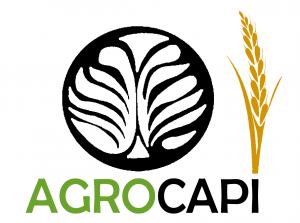 The AGROCAPI research project has studied during four years human urine source separation methods and the pathways toward an agricultural use of urine-derived fertilizer. It was initiated in France by the LEESU (Ecole des Ponts) and ECOSYS (Inrae) laboratories. The results of AGROCAPI were shared at a closing symposium in Paris and online in January 2022.
The AGROCAPI research project has studied during four years human urine source separation methods and the pathways toward an agricultural use of urine-derived fertilizer. It was initiated in France by the LEESU (Ecole des Ponts) and ECOSYS (Inrae) laboratories. The results of AGROCAPI were shared at a closing symposium in Paris and online in January 2022.
Four presentation sessions were organized: the morning was devoted to the presentation of works on the (re)discovery of urino-fertilizers, before addressing the various topics of vigilance regarding their use today. The afternoon was devoted to the construction of new value chains, and the question of mutualism between sanitation and agricultural production.
All the presentations can be viewed in replay.
Practical sheets were produced on this occasion, entitled : “Using human urine in agriculture” (in French).
Agrocapi food productions of were also proposed for tasting (Biscodor [Gold biscuits] cookies produced from wheat flour grown in the Paris region, on experimental plots fertilized with human urine.)
Finally, the Ministry of Agriculture has committed to setting up a national working group to facilitate the emergence of human urine value chains.
Bibliography :
Martin, Tristan M. P.; Levavasseur, Florent ; Dox, Kris ; Tordera, Léa ; Esculier, Fabien ; Smolders, Erik et Houot, Sabine. (2021). Physico-Chemical Characteristics and Nitrogen Use Efficiency of Nine Human Urine-Based Fertilizers in Greenhouse Conditions. Journal of Soil Science and Plant Nutrition, [En ligne].
Martin, T. M., Esculier, F., Levavasseur, F., & Houot, S. (2020). Human urine-based fertilizers: A review. Critical Reviews in Environmental Science and Technology, 1-47.
Brun Florent, Steve Joncoux, Bernard de Gouvello et Fabien Esculier, (2020). Vers une valorisation des urines humaines, le regard des agriculteurs franciliens. Études rurales 206 [En ligne].
Martin, T. 2020. L’urine humaine en agriculture : des filières variées pour contribuer à une fertilisation azotée durable. Thèse de doctorat. Univ. Paris-Saclay.
Goulas A. et al, AGROCAPI, 2020. Principaux enjeux liés à la présence de micropolluants organiques dans les urino-fertilisants (résidus pharmaceutiques, hormonaux et de soins personnels).
